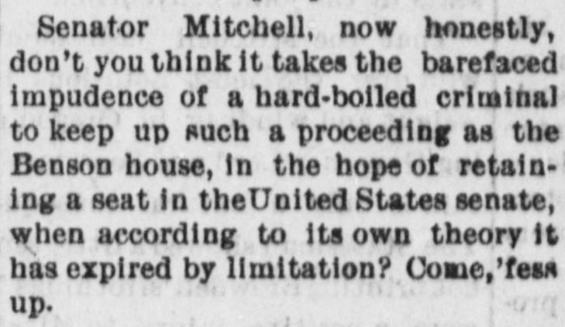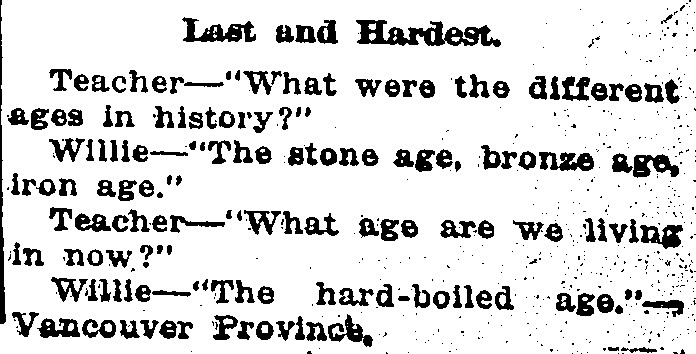The term 'hard-boiled' arose in the last quarter of the 19th century. It was initially strongly associated with criminality. However, by the late 1910s people began to play with the notion of hard-boiled and it took on 'positive' connotations whilst also continuing to convey the sense of being tough and unsentimental. This play with the term began with early 20th century American journalists and also appears frequently in early movie criticism. The positive connotations of hard-boiled are urban in origin and it suggests that being or seeming tough and unsentimental was being entertained as a positive way of dealing with city life. Throughout the 1920s, there are many fictional characters, many in movies, that explore the 'positive' side of being hard-boiled. Some contemporary critics and humorists referred to the 1920s as the 'hard-boiled age.'
Early use of 'hard-boiled' from the Daily Capital Journal Feb 20 1897
[![Early use of 'hard-boiled' Daily Capital Journal Feb 20 1897][1]][1]
'Hard-boiled age' joke from the Chicago Packer 25 April 1925 [1]: https://i.sstatic.net/y9TiQ.jpg

